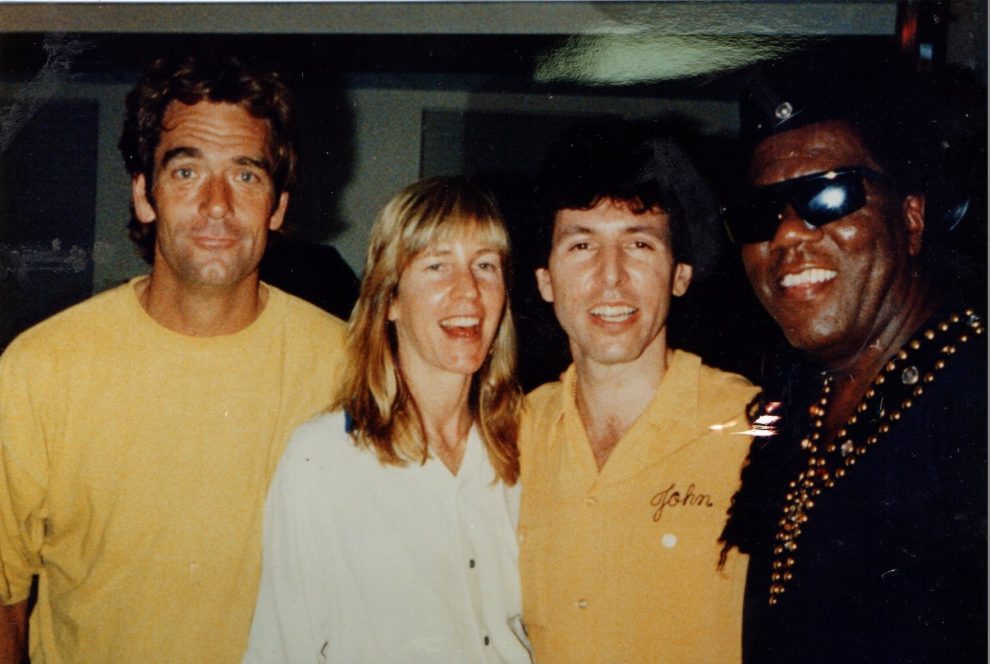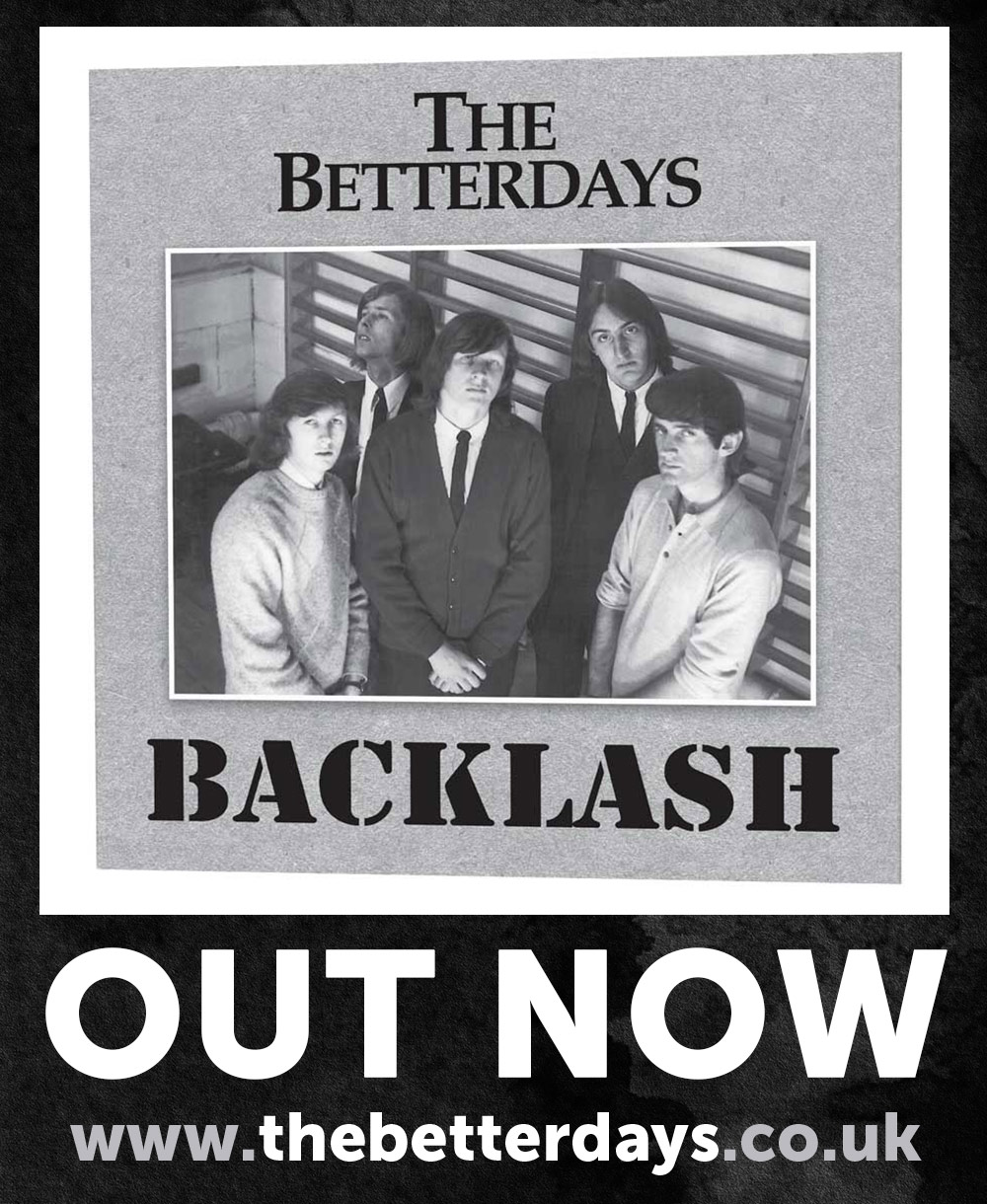The monthly column from celebrated US-based “A-List” session musician, hit songwriter, producer and one time Rolling Stone magazine writer, Jon Tiven. Lifting the lid off the business of making music…
Whether you sing it yourself or are able to place your song with a needy artist, getting your original material recorded is pretty much the best way for a songwriter to earn a living in the music business.
Publishing royalties are the one revenue stream that – if uncorrupted – will provide you with a way to actually see your money. As long as you haven’t signed away your publishing rights, no one can get between you and your statutory royalties.
If you have signed a publishing deal, chances are that whatever you got up-front will probably be the last dollar you see. But if your songs are free and clear and they’ve managed to make their way into the Top Ten, as long as you have someone collecting your money, you’re golden.
Hopefully you’ve learned lessons along the way, and avoided selling off too many pieces of yourself before you hit the ‘Big Time’. My first cuts were the songs I wrote on Alex Chilton’s EP (and later LP). I also had songs out under my own group Prix, later The Yankees, and all of these together generated enough income at the time to at least partially defray my living expenses.
After that, it was hit and miss for a while, with covers by artists like Rick Derringer and Barrence Whitfield & the Savages. Those cuts looked good on my resume, but didn’t produce much folding green. A publishing deal with Famous Music and a few single song deals ($1000/per!) did pay the bills, but generated no covers/recordings.
Sacrifice
In 1981 I joined the Jim Carroll Band and wrote the title track to the second album, “Dry Dreams” with Jim. That might have made some dough, but I had to sacrifice all my publishing to his manager in order to get it on the record. The cheques averaged $23 a year for that one.
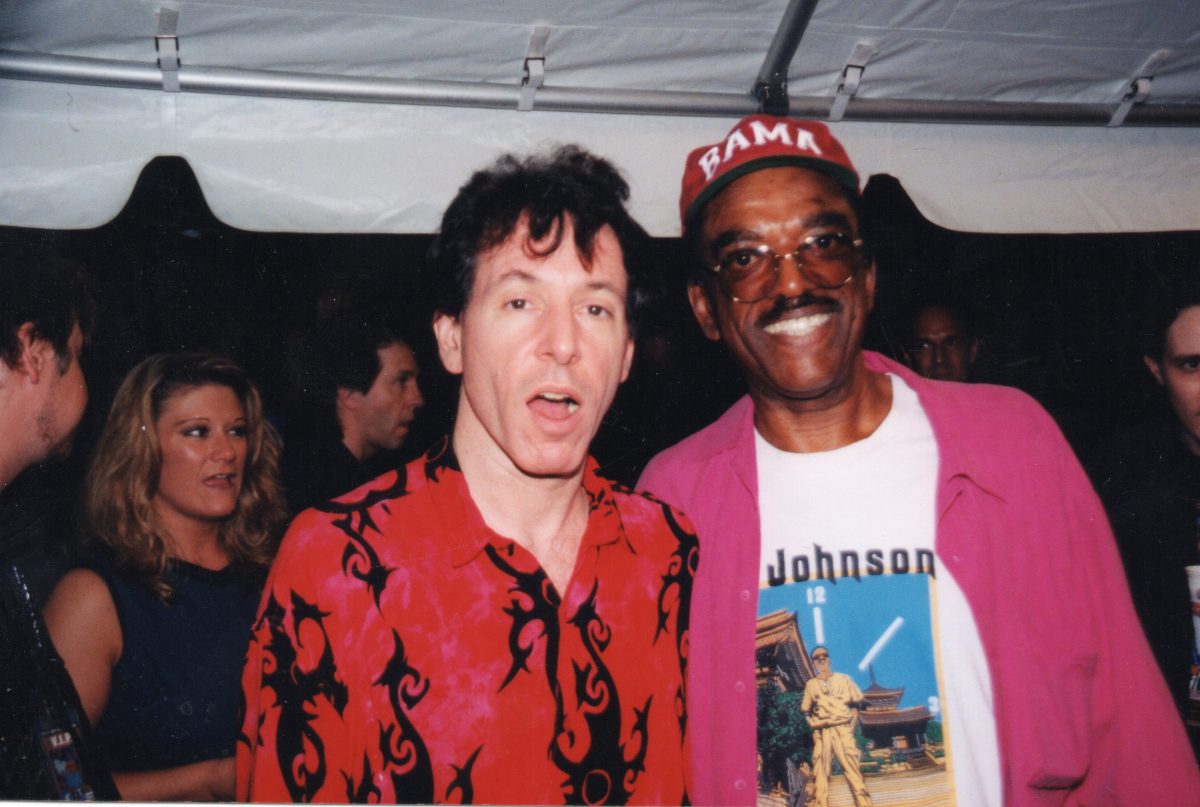
We had some “holds” that would have been fantastic if they had materialized into “recordings”. Gene Simmons took a liking to our song “Beg,” and played it to his then-girlfriend Diana Ross.
Diana went so far as to have us sign non-disclosure agreements, and told us in person how much she loved our song – but didn’t cut it. Our song “Different World” was selected by Pat Benatar and Neil Giraldo, out of the three hundred demos they listened to, and we were assured it would be on their next record. The two of them were so excited they came over to our one-room apartment and re-wrote it with us. You know how this story ends…
My favourite almost-cut was when the great producer Dan Hartman called me on a Sunday to tell me that he and Tina Turner had just listened to “He Don’t Know” (which Sally and I wrote with Don Covay) and thought it was fantastic.
But they had just wrapped up cutting the basics for her album. He assured me that if any of the songs they’d tracked didn’t turn out as well as expected, ours would be the first thing they cut. Fortunately, Huey Lewis & the News turned “He Don’t Know” into a medium-sized hit in a few years’ time, but more on that later.
Our big break came when and where we least expected it. My wife and I played in a band with the comedy team of Al Franken and Tom Davis, they of ‘Saturday Night Live’ fame. They wrote a script involving our band, never expecting that it would get made into a film. Columbia Pictures thought differently, and suddenly a handful of songs written as jokes (lyric example: “Love Nazi/blitzkrieg into your heart”) were paying our rent.
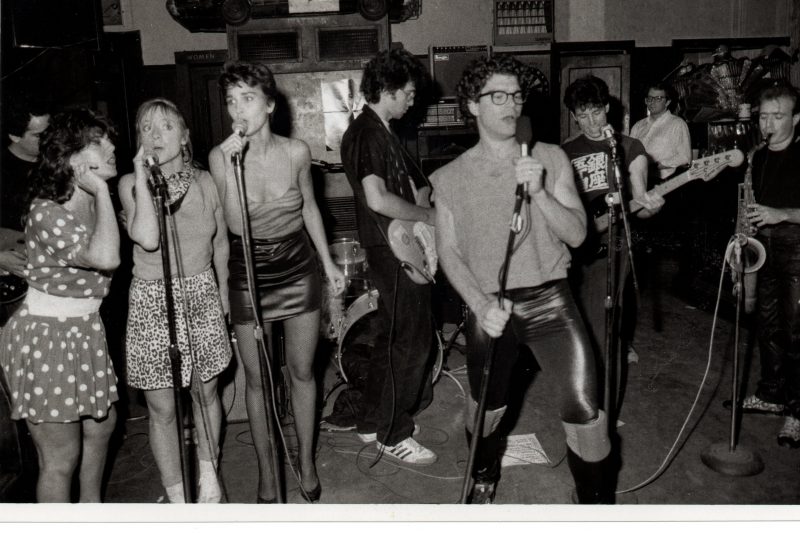
Fantastic. We were playing ourselves in the film as well, paid scale with full benefits. We were put up in a nice hotel on the outskirts of Chicago. Show business!
The movie, unfortunately, got caught up in a political battle between incoming and outgoing administrations at Columbia Pictures.
Our film, ‘One More Saturday Night’, was scheduled to open in a thousand theatres.
The ‘new regime’ scaled it down to 47. Our consolation prize was that a song we wrote with Peter Ackroyd, “Rock The House Down,” was chosen to be in brother Dan’s, ‘Spies Like Us’ film (Warner Brothers, 1985).
So at least we had a big hit movie. But with no soundtrack album, the $$$ from that was not as tangible as the credit.
Big break…
I had been told for years that I had a bright future as a songwriter. Had I already had my “big break” and now was I experiencing the downhill slide? Or was the future still in front of me?
A publisher who was interested in our material asked if we would like to collaborate with one of her lyricists. He was due to visit from the U.K., a fellow by the name of Keith Reid. I was well-familiar with his brilliant work with Procol Harum, so I said of course.
When he arrived at my apartment, I didn’t know quite what to expect from him, and I hadn’t a clue how this not-so-chance meeting would impact my life. Keith was a quiet guy, and not much for small talk at first.
He wanted to hear some music without words, so I went through what I had, finally stumbling upon a track that didn’t have any lyrics or even a title. Keith opened up his briefcase, pulled out a legal-size sheet of paper, and asked if this would work. It was a translation of a French song that didn’t pass mustard with the original artist.
He hadn’t found a new use for this rejected work yet, so he put his cast-off orphan with one of mine and together they made “River of No Return.” I arranged for a session singer to come over and sing the demo, and delivered it to his publisher, Cherie Fonorow (Polygram Music) in just a matter of days.
A week later Cherie called and reported that she had pitched it to Arista President Clive Davis, who put it on hold for a new blues artist he was looking at. She actually had played it for Mitchell Cohen, who was in the process of signing The Jeff Healey Band, and it was a full eighteen months from that day until the song was released. Triple platinum. Well worth waiting for. And Clive himself thanked me for the song not long after.
Later that same year, my friend Angela Strehli, who had been working in a&r for Antone’s Records, called to say that she’d moved to California with her new beau Bob Brown. Bob managed Huey Lewis & the News, and did I have any songs for Huey?
I sent her tape after tape, and the seventh song on cassette number four was, “He Don’t Know,” the afore-mentioned almost-Tina cut. Sure enough, that one made the album, thank you Angela. Their version was terrific, and as the third single off the album, did very respectably.
Around this time, an Australian artist named Ian Moss came to visit New York and stopped by our pad to write a few songs with us. Ian was/is the guitarist in Cold Chisel, one of the biggest groups down under, and he was putting together the material for his debut solo project. “Mr. Rain,” one of several collaborations, was the second single and a biggie it was. It was included on his album “Matchbook” which won five Aria Awards and went triple platinum.
Buddy Guy, BB King, Wilson Pickett, Syl Johnson…
Around the same time, I got a call from my friend David Z, who was producing Buddy Guy and looking for songs. He cut “Midnight Train” (which I wrote with Roger C. Reale) as a duet by Buddy Guy and Jonny Lang, the first single from Buddy’s “Heavy Love” album (the title track was something Sally and I wrote with Dan Penn). Golden!
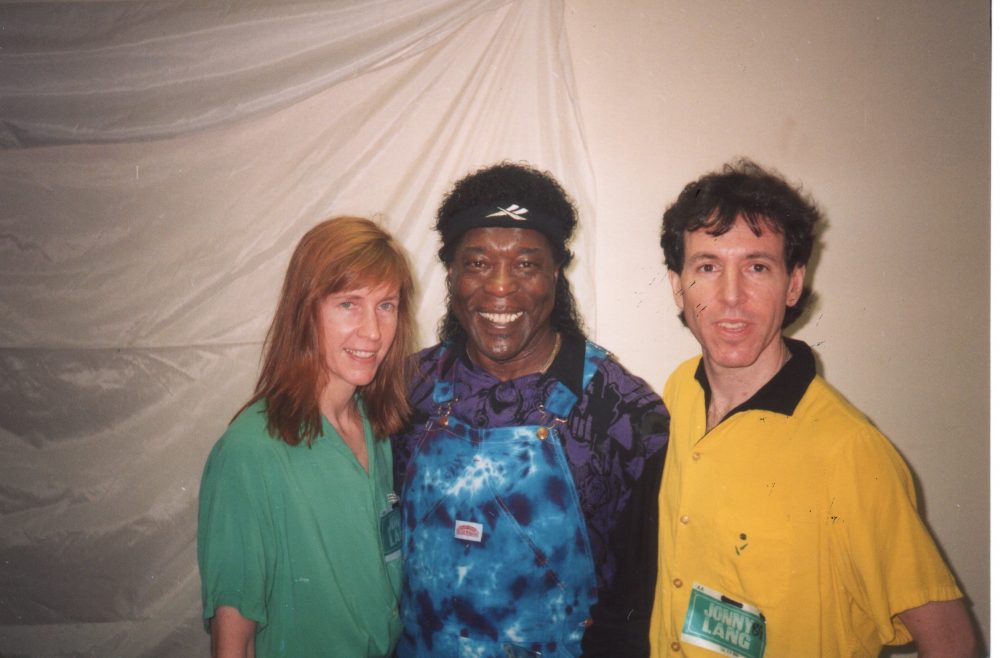
All of a sudden, I was a force-to-be-reckoned-with, at least in the Blues/Soul world. I had not one, but several songs on Gold and Platinum Records. Soon, I’d be producing B.B. King, Little Milton, and Wilson Pickett.
In 2000, eMusic approached me about doing a production deal for seven albums, and I had more work than I knew what to do with. Bringing Syl Johnson, Freddie Scott, Michael Hill, and Ellis Hooks into the studio. With actual budgets to make records properly!
Of course, when the Internet bubble burst and eMusic’s stock plummeted, there was a mass exodus and several of the records I made had to sit on the shelf for a year or two. But that’s the Music Business.
I’ve spent a lot of time pounding pavements, doing follow-up phone calls, and trying to find out who is looking for material. I’ve never found any hot lead from a tip sheet helpful in the least. Nor have I had much luck putting faith in publishers to place my songs.
Over 500 of my songs have been recorded and only three times have they come through publishers. People will tell you that you are your own best publisher, and most of the time they’re right; if only by default.
The flurry of activity I saw during the late Nineties and early 2000s, gave me my first (and only) taste of being a “Hot Property.” This was well before Napster and its successors took all of the oxygen out of the room, so plenty of cash was still on the table.
There were lessons to be learned, and I couldn’t absorb them all, but one I can pass on is this…
Enjoy your NOW. If something can go wrong, it probably will. But in the meantime, try to savour whatever success you achieve. It may not come again…
By Jon Tiven



